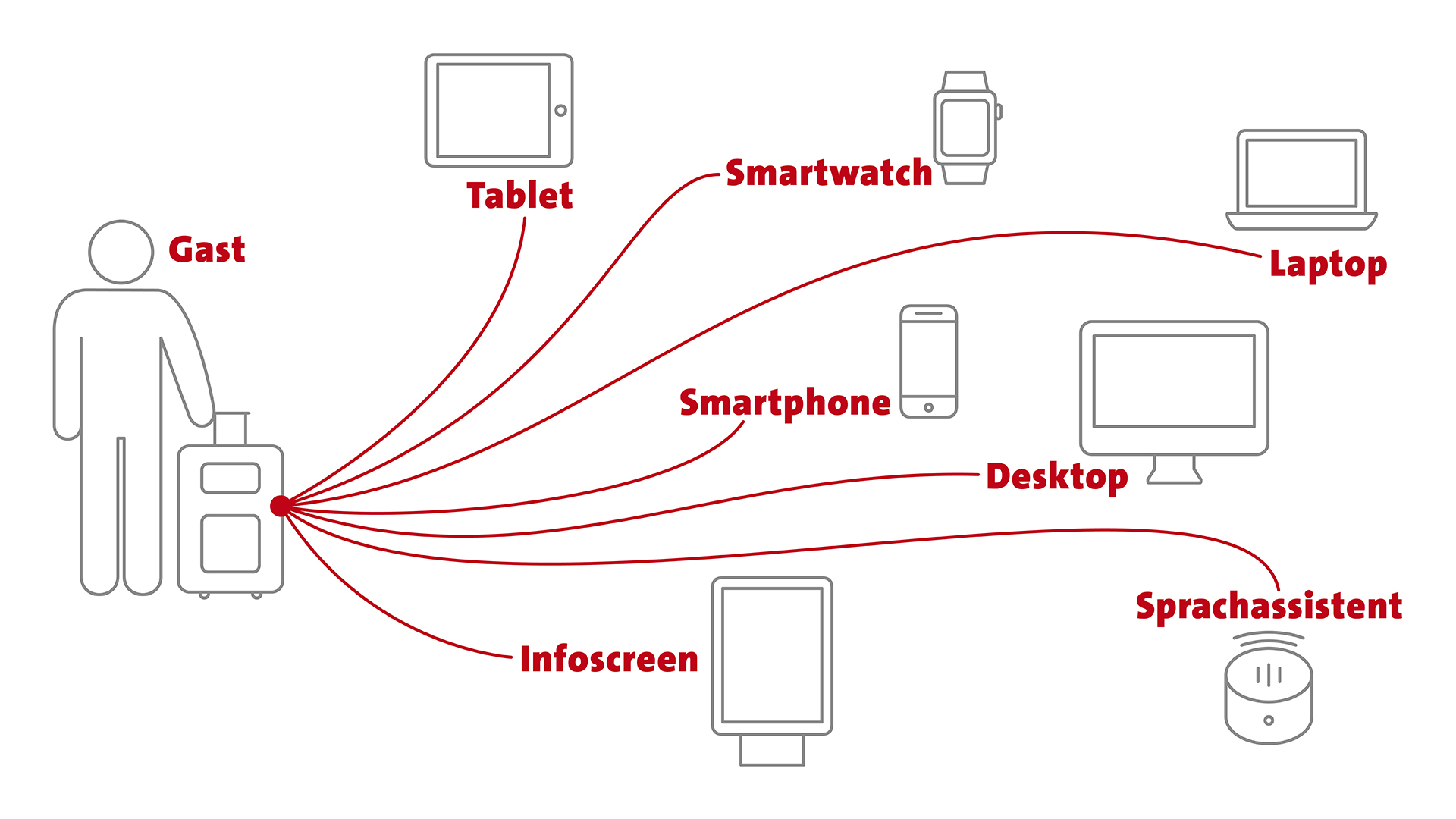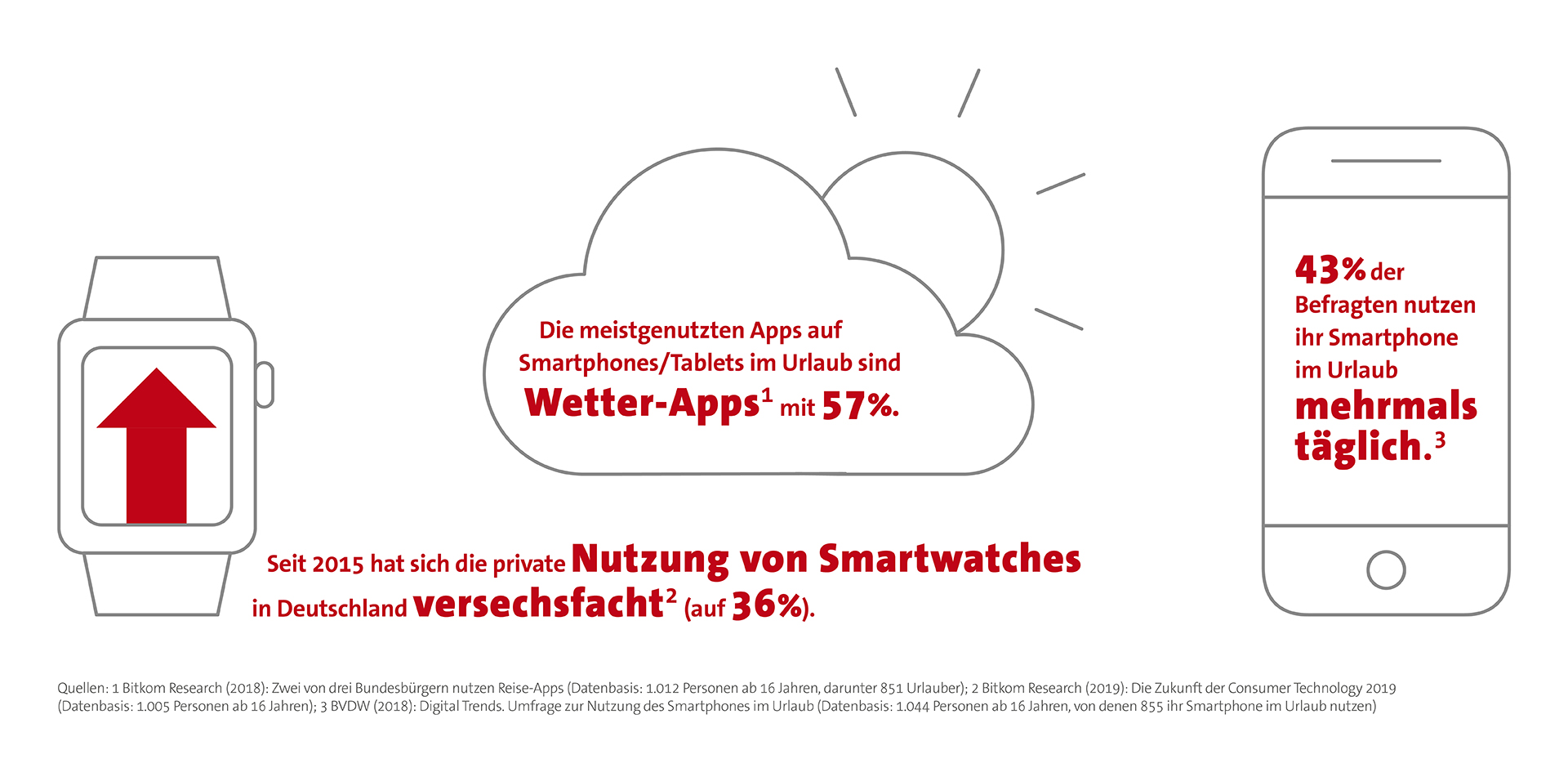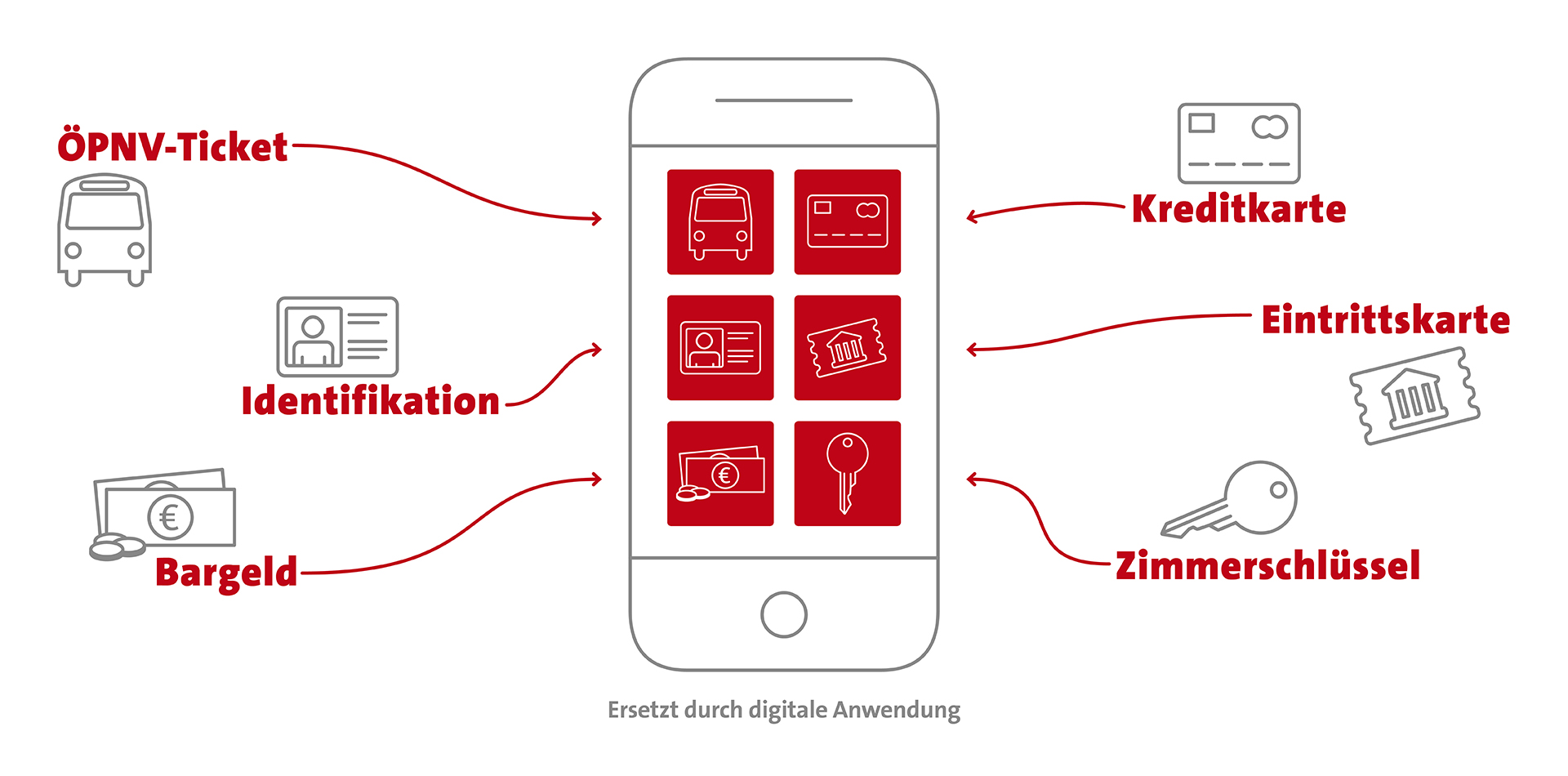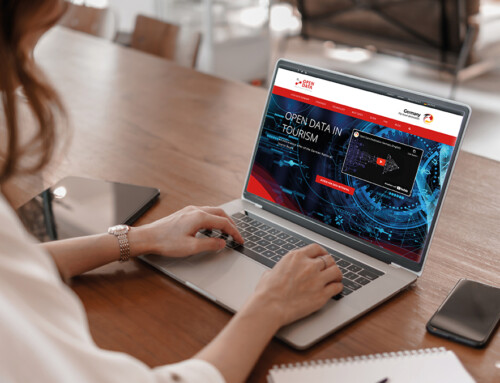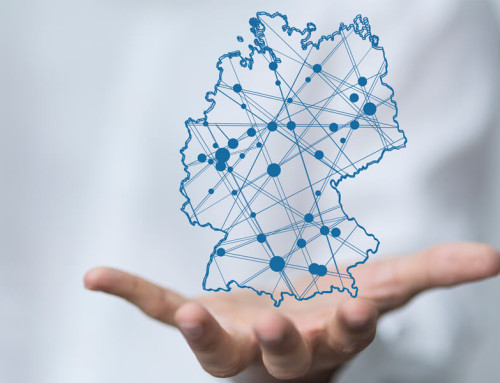Guests are digitally connected – always and everywhere.
The behavior of guests is changing in the course of advancing digitalization: they are increasingly informing themselves and booking digitally, both before and during their trip. The digital device serves not only as an information medium, but also as an all-in-one solution with which guests can access the destination. Guests decide to use an output channel depending on the situation, need and habit. In order for information to be displayed on different media, it must be prepared in a coherent manner. The data can then be used interoperably and can be played out irrespective of the channel.
Guests use different output channels and determine with their behavior which channels are authoritative.
Digital and Real Experiences Merge
Around 73 percent of German guests use their smartphone on holiday. Often a tablet or a laptop is also brought along, which are then usually also used at least once a day. The most important information that guests obtain via their smartphone at their holiday destination is current weather information and assistance with navigation. Already in 2018, 19 percent booked additional services on site. The destination can create digital-analog micro-moments on the guests’ devices.
A Data Infrastructure for the Guests
The developments just documented with figures show that a digital infrastructure is of great relevance for guests and thus becomes a central management task of a destination. It is important for guests that the data they call up on excursion destinations, restaurants, sights etc. is always complete, up-to-date and correct. Through their behaviour, guests define which channels are relevant. This refers not only to the data that is the responsibility of the destination management organisations (DMOs), but to all data that is essential for guests.
Experiences are also booked digitally at the holiday destination
In addition to the data infrastructure, it is increasingly important that guests have the option of booking activities digitally at the holiday destination, regardless of their preferred terminal device. Ideally, this is possible in such a way that they can make the booking directly from their smartphone, the respective ticket is stored on the smartphone and digitally validated upon entry. This eliminates the inconvenience of having to print out a ticket or buy it within the destination and, if necessary, stand in a queue to do so. The goal should be a straightforward travel experience for guests that is free of disruption. Offering digital booking is a challenge for small providers.
The guests’ journey should be “seamless”, i.e. without interruptions.
Dissolving Data and Application Silos as a Goal
If a destination offers digital connection points in the form of apps or other digital interfaces for guests, then care should always be taken that the offer does not become too small-scale. For guests, it’s inconvenient to install a new app for every activity. They rarely switch to regional-specific apps for trips to the surrounding area. The data and application infrastructure should reflect this. The decisive factor is always the habits of the guests themselves. Where they move digitally, the destination data must also be well maintained. Ideally, a connection to a central digital application will then take place so that tickets for excursion destinations or events and other additional services can be sold via them.
Consistently maintained and structured data makes it possible to break down data and application silos. To achieve this, the data played out on the applications must also be described in such a way that they can be used irrespective of a single application.
The Digital Terminal Serves as a Master Key on Vacation
Guests should be able to find their way around the destination digitally and book the services they want. The digital end device is to be regarded as the central interface with the help of which the destination can establish an interaction with the guests. This can refer to all services at the holiday destination. The digital device thus becomes the master key for the guests. They can use it to access their room, public transport, swimming pools, etc. Registration (identification) will also be handled digitally in the future, and smartphones and smartwatches will also be used more and more frequently as a means of payment. Destinations must prepare for these changes.
Eric Horster
West Coast University of Applied Sciences
Eric Horster ist Professor an der Fachhochschule Westküste im Bachelor- und Masterstudiengang International Tourism Management (ITM) mit den Schwerpunktfächern Digitalisierung im Tourismus und Hospitality Management. Er ist Mitglied des Deutschen Instituts für Tourismusforschung.
Mehr zur Person unter: http://eric-horster.de/
Elias Kärle
University of Innsbruck
Elias Kärle ist Wissenschaftler an der Universität Innsbruck. In seiner Forschung beschäftigt er sich mit Knowledge Graphs, Linked Data und Ontologien. Als Vortragender referiert er meist zur Anwendung und Verbreitung semantischer Technologien im Tourismus.
Mehr zur Person unter: https://elias.kaerle.com/



